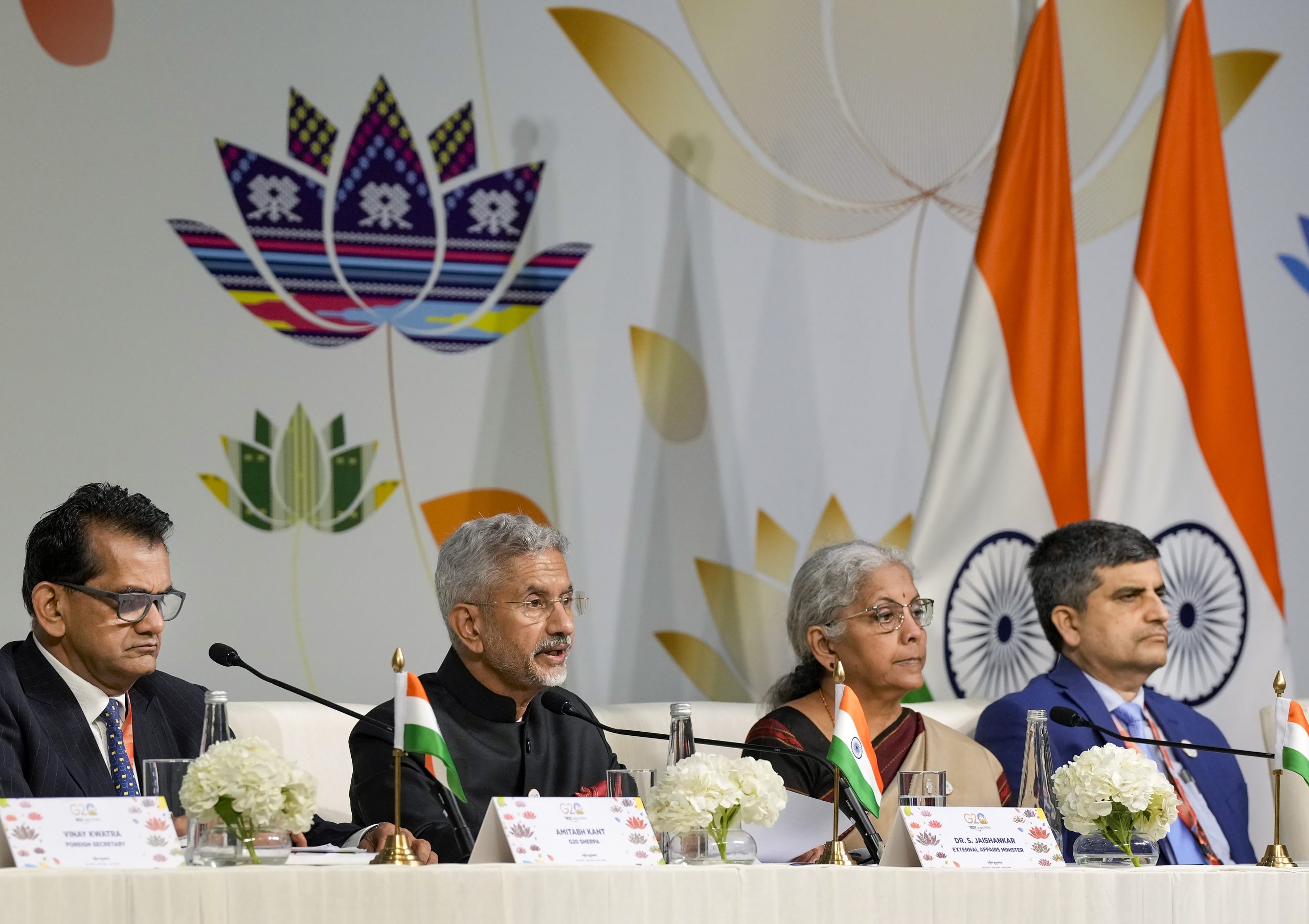NEW DELHI, Jan 12: Just one hour before the G20 Summit commenced on September 9, 2023, Prime Minister Narendra Modi inquired about the status of the leaders’ declaration from Sherpa Amitabh Kant. Upon hearing there were some setbacks, he insisted on seeing a “consensus” swiftly.
Kant quickly convened with fellow Sherpas and successfully secured the final agreement.
These strategic maneuvers are detailed in Kant’s newly released book, “How India Scaled Mt G20: The Inside Story of the G20 Presidency”.
India achieved a significant diplomatic milestone as the G20 summit embraced a consensus declaration, navigating substantial disagreements over the Russia-Ukraine conflict.
Modi unveiled the consensus on the 37-page declaration, announcing its adoption during the second session on the opening day of the two-day summit representing major developed and developing nations.
Kant remarks that the journey from initial principles to the final draft of the NDLD was fraught with challenges.
“The text underwent continuous revisions and faced objections even after 300 hours of negotiations spread across 250 bilateral meetings. The intensity and seriousness of discussions were palpable among all participants, yet a mutually acceptable outcome appeared elusive,” he shares in the book, published by Rupa.
“PM Modi was fully aware of the stakes involved. He had requested urgent updates every two hours, a task that required considerable multitasking and swift assessment. This regular communication kept PM Modi abreast of developments and motivated us to take decisive actions, helping us to navigate the negotiations and assess our progress,” he elaborates.
According to Kant, Russia’s insistence on including the term ‘sanction’ necessitated lengthy discussions with Alexander Pankin, Deputy Minister of Foreign Affairs of the Russian Federation, lasting two-and-a-half hours to persuade them to reconsider.
“The stakes were significant; if there was no compromise, Russia risked isolation with a 19-1 vote against it. We ultimately had to inform Russia that such insistence was unviable and that other nations would not tolerate it. We made it clear that their demands could heavily burden India and hinder our progress,” he recalls.
Throughout the negotiations, G7 nations were pressuring India to extend an invitation to Ukrainian President Volodymyr Zelenskyy, but India maintained its position to keep the guest list exclusive to G20 leaders.
“On Dr. Jaishankar’s advice, I was compelled to inform the Russian negotiators that if they did not concede, Zelenskyy would be the first speaker following PM Modi’s address. This bold negotiation tactic proved effective, prompting Russia to relent,” he states.
However, another challenge emerged when the head of the Chinese delegation raised a bilateral issue with the US regarding a highlighted portion of the G20 declaration, indicating that the 2026 G20 Summit would be held in the US.
The Chinese Sherpa expressed concerns that the US would deny visas, even to their governor in Hong Kong, and they would not proceed with the geopolitical paragraphs until they received written assurances regarding visa issuance, as outlined in the book.
Kant recounts that around 8 a.m. on September 9, Modi visited the Bharat Mandapam to inspect the venue ahead of the leaders’ meeting.
“I was to brief him on our progress. When he asked about the Leaders’ Declaration, I detailed the conflict between the US and China and informed him the NDLD was still pending finalization.
“He paused momentarily, questioning why bilateral matters were being discussed in a multilateral context, but he emphasized that he was not interested in the process—only the outcome he sought was a consensus, and he expected the Sherpa to secure the final agreement,” the book narrates.
The leaders’ meeting began at 9 a.m., and Kant engaged in parallel negotiations in a dedicated session from 9:30 to 11:30 a.m., in a room adjacent to the Leaders’ Hall in Bharat Mandapam.
“Alongside Pyle and Li, we refined the letter’s details, opting for ‘ensure’ instead of ‘guarantee’. By noon, we successfully resolved this bilateral issue, which technically was outside India’s G20 chair role.
“With China on board and all of America’s conditions satisfied, Russia, the US, China, the G7, and every other country were finally in agreement,” Kant writes.
He reflects that consensus was achieved on the first day of the Leaders’ Summit, contrasting it with the drawn-out negotiations at the 2022 Bali Summit’s declaration text, which lingered until the very last hours.
He termed this accomplishment as “no small feat”.
Consequently, after lunch on September 9, Modi officially announced the declaration.
Kant notes that his book chronicles how a nation once perceived merely as a developing power ascended to lead the global stage—proposing solutions, fostering alliances, and crafting a lasting legacy that reflects the ambitions of both developing and developed nations.
The book includes a foreword by External Affairs Minister S Jaishankar. (Agencies)


Leave a Reply